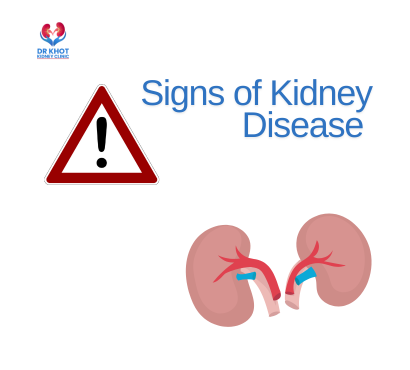Kidneys are the body’s natural filters, responsible for removing waste, balancing fluids, regulating blood pressure, and producing important hormones. Despite their importance, kidney problems often progress silently. Many people do not notice symptoms until the disease is advanced. In India, chronic kidney disease (CKD) is becoming increasingly common due to diabetes, hypertension, and lifestyle-related factors. Early detection can make a huge difference in managing the condition and preventing complications.
In this blog, let’s explore 10 early signs of kidney disease you might be overlooking, along with their implications, prevention, and when to seek medical help.
1. Fatigue and Low Energy
When kidneys are not functioning well, toxins and impurities build up in the blood. This can make you feel constantly tired, weak, or drained. Additionally, kidney disease can lead to anemia (low red blood cell count), worsening fatigue further.
Tip: If you feel unusually tired even after adequate rest, it’s worth checking your kidney function.
2. Swelling in Ankles, Feet, or Hands
One of the most noticeable signs of kidney problems is fluid retention. Swelling, especially in the ankles, feet, and hands, happens because the kidneys cannot remove excess sodium and water from the body.
Tip: Persistent or unexplained swelling should not be ignored.
3. Changes in Urination
Since kidneys directly affect urine production, changes in urination are early indicators of kidney disease. Watch out for:
- Frequent urination, especially at night
- Foamy or bubbly urine (a sign of protein leakage)
- Dark-colored urine
- Blood in urine
- Reduced urine output
Tip: Any unusual changes in urine should be discussed with a doctor.
4. Shortness of Breath
Kidney problems can cause fluid to build up in the lungs, making breathing difficult. Additionally, low red blood cell count (anemia) linked with kidney disease reduces oxygen supply to the body, causing breathlessness.
Tip: If you are experiencing breathlessness unrelated to exercise, it could be an early kidney concern.
5. Puffiness Around the Eyes
Swelling or puffiness around the eyes, particularly in the morning, may indicate that your kidneys are leaking protein into the urine instead of keeping it in the bloodstream.
Tip: Occasional puffiness can be normal, but persistent puffiness is a warning sign.
6. Dry and Itchy Skin
Healthy kidneys maintain the right balance of minerals and nutrients in the body. When kidneys fail to do so, it can lead to dryness, persistent itching, and skin irritation due to imbalances in calcium and phosphorus levels.
Tip: Itchy skin without a clear cause should not be ignored—it may be a sign of kidney disease.
7. Metallic Taste in Mouth and Bad Breath
Accumulation of waste products (uremia) in the blood can cause a metallic taste in the mouth or ammonia-like breath odor. This may also reduce appetite and lead to unintentional weight loss.
Tip: If food tastes metallic or you notice changes in your appetite and breath, consult a doctor.
8. Muscle Cramps
Electrolyte imbalance, especially low calcium or poorly regulated phosphorus, due to kidney dysfunction can cause frequent muscle cramps and twitches.
Tip: Recurrent cramps not related to physical exertion may signal kidney issues.
9. Trouble Concentrating or Dizziness
Kidney disease-related anemia means the brain may not receive enough oxygen. This can lead to trouble concentrating, dizziness, or even memory problems.
Tip: If you frequently feel foggy-headed, kidney health may be the underlying issue.
10. High Blood Pressure
Kidneys regulate blood pressure by balancing sodium and fluid levels. Poor kidney function can increase blood pressure, and in turn, uncontrolled hypertension can damage kidneys further—creating a dangerous cycle.
Tip: If you already have high blood pressure, keep a close watch on kidney health.
Preventing Kidney Disease
While some risk factors like age and genetics cannot be changed, lifestyle choices can go a long way in protecting your kidneys:
- Control blood sugar and blood pressure
- Stay hydrated with adequate water intake
- Limit salt and processed foods
- Avoid smoking and excessive alcohol
- Exercise regularly to maintain weight and circulation
- Get routine kidney check-ups, especially if you have diabetes, hypertension, or a family history of kidney disease
Kidney disease often progresses silently until it becomes severe. Recognizing these early signs—fatigue, swelling, changes in urination, puffiness, shortness of breath, and others—can help with timely diagnosis and treatment. If you notice any of these symptoms, consult a healthcare professional without delay. Protecting your kidneys is essential for long-term health and quality of life.
FAQs
- What are the first tests to check for kidney disease?
Doctors usually recommend a urine test (to check for protein or blood) and a blood test (to measure creatinine and calculate eGFR). These tests help detect early kidney damage. - Can kidney disease be cured completely?
Kidney disease can often be managed but not reversed, especially if detected late. However, early diagnosis and lifestyle changes can slow down or prevent progression. - Who is at the highest risk of developing kidney disease?
People with diabetes, hypertension, obesity, or a family history of kidney disease are most at risk. Ageing also increases risk, making regular screening essential.

